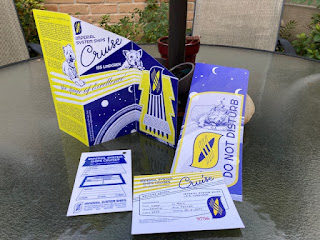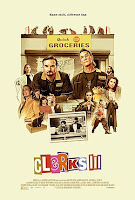By
Scott D. Parker
Failure sucks, but failure isn't all bad.
After rehearsal on Thursday night, I came back home (with McDonald's food!) to find my wife watching a new four-part documentary on the history of Saturday Night Live. I missed the first episode and most of the second, but I ended up watching the last two.
The third episode is an entire deep dive on the Cowbell sketch. That was fun. The fourth, however, was brand-new to me. Entitled, “Season 11: The Weird Year,” it details the new-to-me saga of that year. And there was a lot I didn't know. Randy Quaid was a cast member?!
Full disclosure: I didn't start watching SNL regularly until my college years. Thus: the late 1980s and early 1990s. I was either too young for the show or didn't know it was on or whatever.
This episode fascinated me. Everyone interviewed for this documentary talked about how they knew, in real time, that the season wasn't good. It wasn't connecting with the audience or even the folks working the show.
Yet they had to keep going. What other choice was there?
By the end of the 1985-1986 season, rumors were rampant that SNL would be canceled. They even aired a semi-cliffhanger as the season finale, which is pretty interesting.
The conclusion of the documentary episode has the same folks talking about the changes that were made for Season 12. They hired new writers, brought in new cast members skilled at sketch comedy, and, with an eye to what went wrong in Season 11, they moved forward.
And never looked back.
What Can We Learn?
We creatives not working in front of a camera like to hide our failures. Especially writers. All of us have drawers full of finished manuscripts that may not deserve to see the light of day and that's fine.
But what about those completed stories that we're just too scared to share? What's holding you back? Fear of failure?
Get over it.
Unless you are in the business of just writing and never selling stories, get your work out there. Get it out in front of readers. Let them read it.
Yeah, they may hate it and you'll have to deal with their reviews, but how else are you going to learn? Those same readers also might love what you wrote, and how good would that feel?
The Writer's "Five Minutes"
Episode 1 of the documentary features cast auditions. My wife said it was fun to see the younger versions of these actors we've come to know and love being given five minutes to prove themselves. Five minutes. In front of Lorne Michaels and others. Could you do it?
You can, and you should. The writer's version of those five minutes is the preview chapters, the book description, and the cover. Make them the best that you can, get it out to the public, and then move on to the next project.
And if one of your books turns out to be like SNL's Season 11, suck it up, figure out how to fix it, and move forward.





